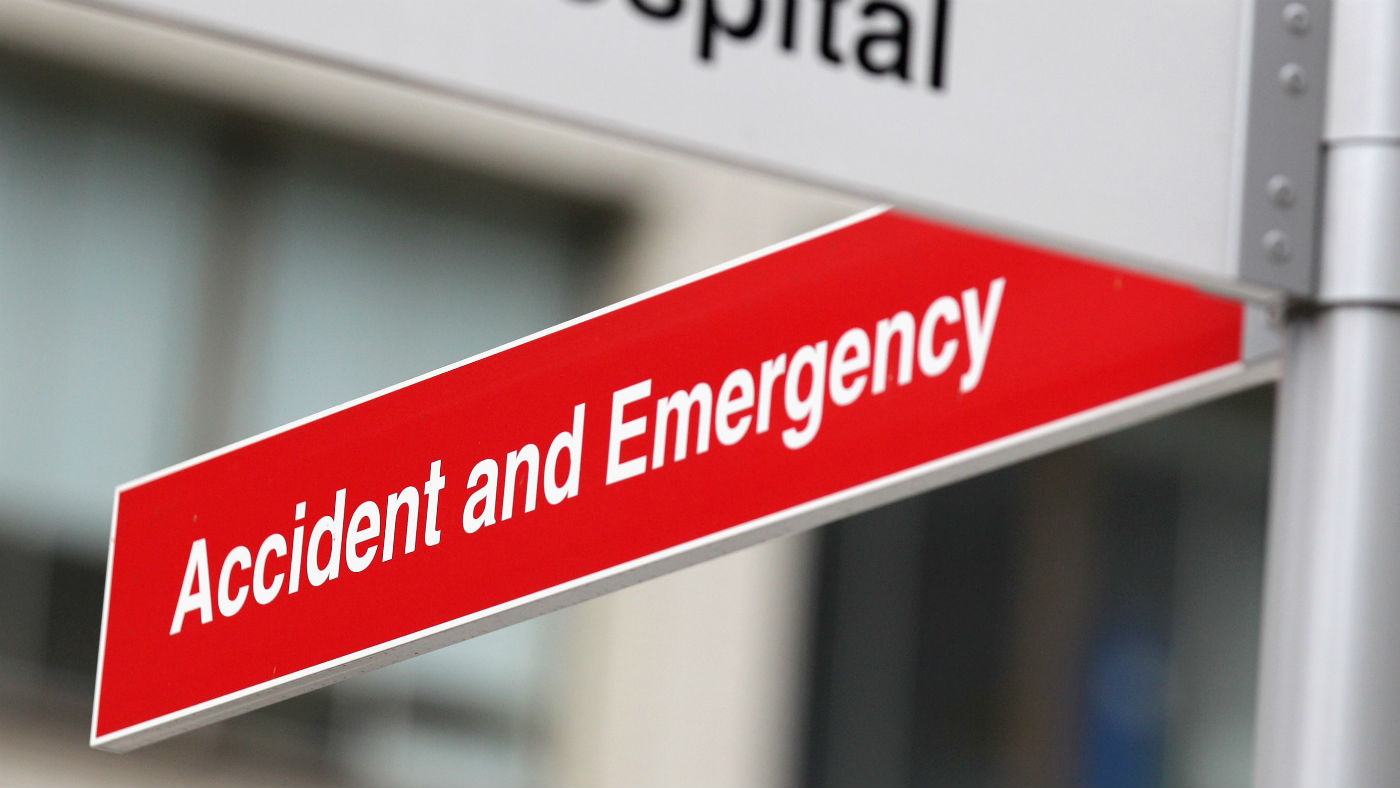NHS A&E waiting times hit 15-year high
Are Tory cuts, an ageing population or the cold weather to blame?

A free daily email with the biggest news stories of the day – and the best features from TheWeek.com
You are now subscribed
Your newsletter sign-up was successful
A&E waiting times in England have reached their worst levels in 15 years when the four-hour target was introduced, with cuts to social services, an ageing population and cold weather all blamed.
NHS figures show accident and emergency units in England dealt with just 84.4% of patients within four hours in January, well below the 95% threshold.
This means nearly 330,000 patients waited longer than they should have. More than 83,000 people faced “trolley waits” of a further four hours while a room was found on wards, “also the highest figure since current targets were set 15 years ago”, says Sky News.
The Week
Escape your echo chamber. Get the facts behind the news, plus analysis from multiple perspectives.

Sign up for The Week's Free Newsletters
From our morning news briefing to a weekly Good News Newsletter, get the best of The Week delivered directly to your inbox.
From our morning news briefing to a weekly Good News Newsletter, get the best of The Week delivered directly to your inbox.
“The figures are striking because the NHS recorded its worst-ever A&E performance last month despite the absence of prolonged severe weather and relatively low levels of flu and norovirus, the winter vomiting bug,” says The Guardian.
Despite this, there were more than 2.1 million attendances in January, again the highest on record.
“This is being driven by the increasing elderly population, but has also been driven by a decade-long funding squeeze which means accessing social care services, GPs and other preventative services has been made harder,” says The Independent.
Shadow health secretary Jonathan Ashworth said: “A&E waiting times are now at their worst level since records began, which is a damning indictment of years of austerity and wider cuts imposed upon health and care services under the Tories.”
A free daily email with the biggest news stories of the day – and the best features from TheWeek.com
Meanwhile, Royal College of Emergency Medicine (RCEM) president, Dr Taj Hassan, said it was sad emergency departments have “become seemingly normalised with a 'chronic crisis mode' that does not allow staff to deliver the quality of care they would wish and patients should rightly expect”.
The Guardian says the NHS’s performance against its other main treatment target “has also slipped to its lowest level for almost 10 years”. This covers non-urgent procedures such as a hernia repair, cataract removal and hip or knee replacement.
Amid claims the NHS is “fighting a losing battle in trying to meet its commitments to provide timely healthcare” there have been calls for the four-hour target, first introduced under Tony Blair, to be revised.
The recently published NHS 10-year plan did not address changes to the target, although Simon Stevens, NHS England's chief executive, has repeatedly said it is not fit for purpose when many conditions can safely wait longer.
-
 Secured vs. unsecured loans: how do they differ and which is better?
Secured vs. unsecured loans: how do they differ and which is better?the explainer They are distinguished by the level of risk and the inclusion of collateral
-
 ‘States that set ambitious climate targets are already feeling the tension’
‘States that set ambitious climate targets are already feeling the tension’Instant Opinion Opinion, comment and editorials of the day
-
 Mixing up mixology: The year ahead in cocktail and bar trends
Mixing up mixology: The year ahead in cocktail and bar trendsthe week recommends It’s hojicha vs. matcha, plus a whole lot more
-
 A real head scratcher: how scabies returned to the UK
A real head scratcher: how scabies returned to the UKThe Explainer The ‘Victorian-era’ condition is on the rise in the UK, and experts aren’t sure why
-
 How dangerous is the ‘K’ strain super-flu?
How dangerous is the ‘K’ strain super-flu?The Explainer Surge in cases of new variant H3N2 flu in UK and around the world
-
 The ‘menopause gold rush’
The ‘menopause gold rush’Under the Radar Women vulnerable to misinformation and marketing of ‘unregulated’ products
-
 How the care industry came to rely on migrant workers
How the care industry came to rely on migrant workersThe Explainer Government crackdown on recruiting workers abroad risks deepening care sector crisis, industry leaders warn
-
 Could medics' misgivings spell the end of the assisted dying bill?
Could medics' misgivings spell the end of the assisted dying bill?Today's Big Question The Royal College of Psychiatrists has identified 'serious concerns' with the landmark bill – and MPs are taking notice
-
 Washwood Heath: Birmingham's pioneering neighbourhood health service
Washwood Heath: Birmingham's pioneering neighbourhood health serviceIn the Spotlight NHS England chair says there is a 'really good argument this is the model for the future'
-
 The UK's first legal drug consumption room
The UK's first legal drug consumption roomThe Explainer 'Potentially transformative moment in UK drugs policy' as The Thistle opens in Glasgow
-
 How can the UK solve the adult social care crisis?
How can the UK solve the adult social care crisis?Today's Big Question New commission announced to turn our buckling care sector around: yet more delay or finally a way forward?